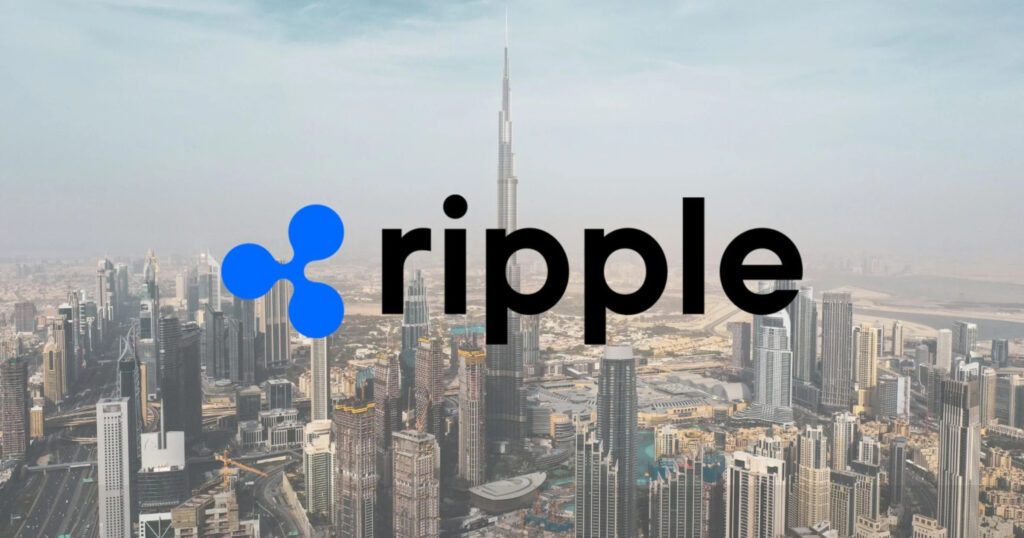Footprint : In a decisive move toward reshaping the future of financial technology in the Middle East, Ripple Labs, a global leader in blockchain-based payment solutions, has engaged with senior officials in the United Arab Emirates to explore partnerships and policy frameworks aimed at accelerating digital payment infrastructure and financial innovation. This engagement marks a pivotal chapter in Ripple’s ongoing expansion strategy in the Gulf region and reflects the UAE’s ambition to lead the global fintech revolution.
The timing of this dialogue could not be more critical. As global economies pivot toward decentralized finance and digital currencies, the UAE has positioned itself as a forward-looking hub for innovation in blockchain technology and financial services. Ripple’s growing interest in this market aligns with the nation’s economic vision and digital transformation agenda.
A Strategic Presence at the Dubai FinTech Summit
Ripple’s leadership made headlines during the recent Dubai FinTech Summit 2025, one of the most influential financial technology conferences globally. Monica Long, President of Ripple, led the company’s delegation, holding high-level meetings with key UAE government figures, including His Highness Sheikh Ahmed bin Saeed Al Maktoum, Chairman of the Dubai Civil Aviation Authority and CEO of Emirates Group.

The summit attracted more than 9,000 attendees and thought leaders from over 120 countries, serving as a platform for policy advocacy, networking, and dialogue between private-sector pioneers and regulators. During the discussions, Ripple emphasized the importance of robust blockchain-based infrastructure in supporting efficient, secure, and inclusive financial systems.
“Our engagement with the UAE leadership is a testament to Ripple’s commitment to fostering global financial equity through digital innovation,” Monica Long noted during the summit. “The UAE is not just embracing change—it is driving it, and we are proud to support this journey.”

Ripple’s Deepening Roots in the Middle East
The collaboration between Ripple and UAE authorities is not new. Since establishing its regional office in Dubai in 2020, Ripple has steadily expanded its footprint in the Gulf. Nearly 20% of Ripple’s global customer base is now located in the Middle East and North Africa (MENA) region—a significant indication of the region’s receptiveness to blockchain-based financial solutions.
RippleNet, the company’s global payments network powered by XRP, has already enabled faster and more cost-effective cross-border transactions for several financial institutions in the Middle East. Institutions in the UAE, Bahrain, and Saudi Arabia have been among the early adopters, seeing Ripple as a tool to streamline remittances and interbank settlements.
Moreover, Ripple’s collaboration with the Dubai International Financial Centre (DIFC) Innovation Hub is another cornerstone of its strategy. This partnership has fostered the development of blockchain innovation by connecting startups, regulators, and venture capitalists in a single, regulated ecosystem. The DIFC Innovation Hub hosts more than 1,000 financial and technology firms, creating an ideal environment for companies like Ripple to prototype and scale their solutions.
Regulatory Breakthrough: DFSA Licensing Milestone
One of the most significant developments fueling Ripple’s expansion in the UAE is the company’s recent acquisition of a regulatory license from the Dubai Financial Services Authority (DFSA). The license, issued under the DIFC regulatory framework, authorizes Ripple to offer regulated digital asset services and blockchain-based payment solutions within the UAE.
With this license, Ripple gains formal access to a regional trade corridor valued at over $400 billion annually. This access allows Ripple to deploy enterprise-grade blockchain solutions that can serve the payment needs of major corporations, financial institutions, and even government-backed projects.
The licensing milestone is emblematic of the UAE’s progressive regulatory approach toward emerging technologies. The DFSA has been one of the most proactive financial regulators globally, recognizing the importance of fostering innovation while maintaining market integrity and consumer protection.
The license also sends a clear message to the global fintech community: the UAE is open for blockchain business, and Ripple is among the frontrunners poised to benefit from this forward-looking stance.
Driving Financial Innovation Through Collaboration
Ripple’s engagement with UAE officials is more than a market entry strategy—it’s a collaborative effort to reimagine the global payments ecosystem. With trillions of dollars in cross-border transactions occurring annually, there is a growing demand for systems that are faster, cheaper, and more transparent than traditional banking infrastructure.
Blockchain technology, particularly Ripple’s XRP Ledger, offers a decentralized and scalable solution. By enabling near-instant settlement and significantly lower fees, Ripple can bridge financial institutions across borders, including underserved regions in Asia, Africa, and the Middle East.
During the Dubai FinTech Summit, Ripple’s representatives discussed the potential for launching pilot projects that would test the interoperability of CBDCs (Central Bank Digital Currencies) with XRP infrastructure. These pilot projects are expected to demonstrate how Ripple’s technology could complement sovereign digital currencies being explored by the UAE and other Gulf countries.
Such projects could also support the UAE’s long-term vision under the D33 Economic Agenda, which aims to position Dubai as one of the world’s top four global financial centers and create over AED 100 billion in economic value through digital transformation by 2033.
Market Reactions and XRP Performance
Unsurprisingly, Ripple’s bold steps in the UAE have sparked investor interest. The company’s native cryptocurrency, XRP, surged by more than 8% following the announcement of its licensing approval and executive-level meetings. Daily trading volumes increased significantly, and investor sentiment turned bullish amid growing optimism about Ripple’s regulatory clarity and market expansion.
This price movement also reflects a broader trend of increased investor confidence in regulated digital assets. As more jurisdictions like the UAE establish clear guidelines for blockchain technology, institutional investors are likely to enter the market, bringing with them capital, stability, and further innovation.
Ripple’s Road Ahead in the UAE
With regulatory approval in hand and a strong network of partners in place, Ripple is poised to become a key player in the UAE’s financial future. The company plans to expand its Dubai operations, hire local talent, and roll out new services tailored to regional markets. Areas of focus will include SME banking, remittance corridors, and governmental blockchain applications.
Moreover, Ripple is expected to work closely with UAE universities, think tanks, and incubators to develop educational and training programs that will prepare the next generation of fintech professionals. This talent development initiative could play a crucial role in sustaining the country’s innovation momentum and establishing it as a global blockchain leader.
Conclusion
Ripple’s ongoing collaboration with the United Arab Emirates marks a new chapter in the global evolution of digital finance. As blockchain technology continues to disrupt traditional systems, partnerships like these offer a glimpse into a future where financial transactions are not only faster and more affordable but also more inclusive and transparent.
For Ripple, the UAE represents a strategic frontier—a place where regulation, innovation, and ambition converge. And for the UAE, Ripple’s technology offers the tools to unlock new levels of efficiency, connectivity, and global leadership.
As both sides deepen their collaboration, the world watches with anticipation. The ripple effects of this partnership may well extend far beyond the Arabian Gulf, shaping the digital economy of tomorrow.
Do follow Uae stories for more Updates
Emirates D10 2025: Comprehensive Analysis of Matches 5–8 (May 13)














